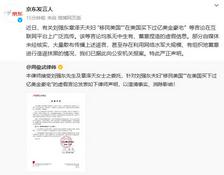使用@Component注解,将类转化为 vue 的组件,以下是一个示例
import vue from 'vue'
import Component from 'vue-class-component'
// HelloWorld class will be a Vue component
@Component
export default class HelloWorld extends Vue {}data属性初始化可以被声明为类的属性。
<template>
<div>{{ message }}</div>
</template>
<script>
import Vue from 'vue'
import Component from 'vue-class-component'
@Component
export default class HelloWorld extends Vue {
// Declared as component data
message = 'Hello World!'
}
</script>上面的组件,将message渲染到div元素种,作为组件的 data
需要注意的是,如果未定义初始值,则类属性将不会是相应式的,这意味着不会检测到属性的更改:
import Vue from 'vue'
import Component from 'vue-class-component'
@Component
export default class HelloWorld extends Vue {
// `message` will not be reactive value
message = undefined
}为了避免这种情况,可以使用 null 对值进行初始化,或者使用 data()构造钩子函数,如下:
import Vue from 'vue'
import Component from 'vue-class-component'
@Component
export default class HelloWorld extends Vue {
// `message` will be reactive with `null` value
message = null
// See Hooks section for details about `data` hook inside class.
data() {
return {
// `hello` will be reactive as it is declared via `data` hook.
hello: undefined
}
}
}组件方法可以直接声明为类的原型方法:
<template>
<button v-on:click="hello">Click</button>
</template>
<script>
import Vue from 'vue'
import Component from 'vue-class-component'
@Component
export default class HelloWorld extends Vue {
// Declared as component method
hello() {
console.log('Hello World!')
}
}
</script>计算属性可以声明为类属性getter/setter:
<template>
<input v-model="name">
</template>
<script>
import Vue from 'vue'
import Component from 'vue-class-component'
@Component
export default class HelloWorld extends Vue {
firstName = 'John'
lastName = 'Doe'
// Declared as computed property getter
get name() {
return this.firstName + ' ' + this.lastName
}
// Declared as computed property setter
set name(value) {
const splitted = value.split(' ')
this.firstName = splitted[0]
this.lastName = splitted[1] || ''
}
}
</script>data()方法,render()方法和所有的声明周期钩子函数,也都可以直接声明为类的原型方法,但是,不能在实例本身上调用它们。
当声明自定义方法时,注意命名不要与这些hooks方法名相冲突。
import Vue from 'vue'
import Component from 'vue-class-component'
@Component
export default class HelloWorld extends Vue {
// Declare mounted lifecycle hook
mounted() {
console.log('mounted')
}
// Declare render function
render() {
return <div>Hello World!</div>
}
}对于其他所有选项,则需要将其写到注解 @Component中。
<template>
<OtherComponent />
</template>
<script>
import Vue from 'vue'
import Component from 'vue-class-component'
import OtherComponent from './OtherComponent.vue'
@Component({
// Specify `components` option.
// See Vue.js docs for all available options:
// https://vuejs.org/v2/api/#Options-Data
components: {
OtherComponent
}
})
export default class HelloWorld extends Vue {
firstName = 'John'
lastName = 'Doe'
// Declared as computed property getter
get name() {
return this.firstName + ' ' + this.lastName
}
// Declared as computed property setter
set name(value) {
const splitted = value.split(' ')
this.firstName = splitted[0]
this.lastName = splitted[1] || ''
}
// Declare mounted lifecycle hook
mounted() {
console.log('mounted')
}
// Declare render function
render() {
return <div>Hello World!</div>
}
}
</script>如果你使用一些Vue插件(如Vue Router),你可能希望类组件解析它们提供的钩子。在这种情况下,可以只用Component.registerHooks来注册这些额外的钩子:
// class-component-hooks.js
import Component from 'vue-class-component'
// Register the router hooks with their names
Component.registerHooks([
'beforeRouteEnter',
'beforeRouteLeave',
'beforeRouteUpdate'
])// main.js
// Make sure to register before importing any components
import './class-component-hooks'
import Vue from 'vue'
import App from './App'
new Vue({
el: '#app',
render: h => h(App)
})在注册完这些钩子后,在类组件中,可以把它们当成类的原型方法来使用:
import Vue from 'vue'
import Component from 'vue-class-component'
@Component
export default class HelloWorld extends Vue {
// The class component now treats beforeRouteEnter,
// beforeRouteUpdate and beforeRouteLeave as Vue Router hooks
beforeRouteEnter(to, from, next) {
console.log('beforeRouteEnter')
next()
}
beforeRouteUpdate(to, from, next) {
console.log('beforeRouteUpdate')
next()
}
beforeRouteLeave(to, from, next) {
console.log('beforeRouteLeave')
next()
}
}建议将注册的过程,写到一个单独的文件中,因为注册的过程必须在任何组件定义和导入之前进行。
通过将钩子注册的import语句放在main.ts的顶部,可以确保执行顺序:
// main.js
// Make sure to register before importing any components
import './class-component-hooks'
import Vue from 'vue'
import App from './App'
new Vue({
el: '#app',
render: h => h(App)
})你可以通过自定义装饰器来扩展此库的功能。
Vue-class-component 提供了 createDecorator帮助器 来创建自定义装饰器。
createDecorator的第一个参数为一个回调函数,这个回调函数接收如下参数:
以下是一个创建一个日志装饰器的示例程序,该装饰器的作用是:
当被装饰的方法被调用时,打印该方法的方法名和传递进来的参数。
// decorators.js
import { createDecorator } from 'vue-class-component'
// Declare Log decorator.
export const Log = createDecorator((options, key) => {
// Keep the original method for later.
const originalMethod = options.methods[key]
// Wrap the method with the logging logic.
options.methods[key] = function wrapperMethod(...args) {
// Print a log.
console.log(`Invoked: ${key}(`, ...args, ')')
// Invoke the original method.
originalMethod.apply(this, args)
}
})将其作为方法装饰器使用:
import Vue from 'vue'
import Component from 'vue-class-component'
import { Log } from './decorators'
@Component
class MyComp extends Vue {
// It prints a log when `hello` method is invoked.
@Log
hello(value) {
// ...
}
}当hello()执行时,参数为 42 时,其打印结果为:
Invoked: hello( 42 )
可以通过继承的方式,扩展一个已有的类。假设你有一个如下的超类组件:
// super.js
import Vue from 'vue'
import Component from 'vue-class-component'
// Define a super class component
@Component
export default class Super extends Vue {
superValue = 'Hello'
}你可以通过如下的类继承语法来扩展它:
import Super from './super'
import Component from 'vue-class-component'
// Extending the Super class component
@Component
export default class HelloWorld extends Super {
created() {
console.log(this.superValue) // -> Hello
}
}需要注意的是,每个超类型都必须是类组件。换句话说,它需要继承Vue构造函数作为基类,并且,必须要有@Component装饰器进行装饰。
vue-class-component 提供mixins帮助器,使其支持以类的风格使用 mixins.
通过使用mixins帮助器,TypeScript可以推断mixin类型并在组件类型上继承它们。
以下是一个声明 Hello 和 World Mixins的示例:
// mixins.js
import Vue from 'vue'
import Component from 'vue-class-component'
// You can declare mixins as the same style as components.
@Component
export class Hello extends Vue {
hello = 'Hello'
}
@Component
export class World extends Vue {
world = 'World'
}在一个类组件中使用它们:
import Component, { mixins } from 'vue-class-component'
import { Hello, World } from './mixins'
// Use `mixins` helper function instead of `Vue`.
// `mixins` can receive any number of arguments.
@Component
export class HelloWorld extends mixins(Hello, World) {
created () {
console.log(this.hello + ' ' + this.world + '!') // -> Hello World!
}
}和Extends中的超类一样,所有的mixins都必须定义为类式组件。
如果你用箭头函数的形式,定义一个类属性(方法),当你在箭头函数中调用 this 时,这将不起作用。这是因为,在初始化类属性时,this只是Vue实例的代理对象。
import Vue from 'vue'
import Component from 'vue-class-component'
@Component
export default class MyComp extends Vue {
foo = 123
// DO NOT do this
bar = () => {
// Does not update the expected property.
// `this` value is not a Vue instance in fact.
this.foo = 456
}
}在这种情况下,你可以简单的定义一个方法,而不是一个类属性,因为Vue将自动绑定实例:
import Vue from 'vue'
import Component from 'vue-class-component'
@Component
export default class MyComp extends Vue {
foo = 123
// DO this
bar() {
// Correctly update the expected property.
this.foo = 456
}
}由于原始的构造函数已经被使用来收集初始组件的 data数据。因此,建议不要自行使用构造函数。
import Vue from 'vue'
import Component from 'vue-class-component'
@Component
export default class Posts extends Vue {
posts = []
// DO NOT do this
constructor() {
fetch('/posts.json')
.then(res => res.json())
.then(posts => {
this.posts = posts
})
}
}上面的代码打算在组件初始化时获取post列表,但是由于Vue类组件的工作方式,fetch过程将被调用两次。
建议使用组件声明周期函数,如 creatd() 而非构造函数(constructor)。
Vue-class-component 没有提供属性定义的专用 Api,但是,你可以使用 canonical Vue.extend API 来完成:
<template>
<div>{{ message }}</div>
</template>
<script lang="ts">
import Vue from 'vue'
import Component from 'vue-class-component'
// Define the props by using Vue's canonical way.
const GreetingProps = Vue.extend({
props: {
name: String
}
})
// Use defined props by extending GreetingProps.
@Component
export default class Greeting extends GreetingProps {
get message(): string {
// this.name will be typed
return 'Hello, ' + this.name
}
}
</script>由于Vue.extend会推断已定义的属性类型,因此可以通过继承它们在类组件中使用它们。
如果你同时还需要扩展 超类组件 或者 mixins 之类的,可以使用 mixins 帮助器 将定义的属性和 超类组价,mixins 等结合起来:
<template>
<div>{{ message }}</div>
</template>
<script lang="ts">
import Vue from 'vue'
import Component, { mixins } from 'vue-class-component'
import Super from './super'
// Define the props by using Vue's canonical way.
const GreetingProps = Vue.extend({
props: {
name: String
}
})
// Use `mixins` helper to combine defined props and a mixin.
@Component
export default class Greeting extends mixins(GreetingProps, Super) {
get message(): string {
// this.name will be typed
return 'Hello, ' + this.name
}
}
</script>有时候,你不得不在类组件之外定义属性和方法。
例如,Vue的官方状态管理库 Vuex 提供了 MapGetter 和 mapActions帮助器,用于将 store 映射到组件属性和方法上。
这些帮助器,需要在 组件选项对象中使用。
即使在这种情况下,你也可以将组件选项传递给@component decorator的参数。
但是,当属性和方法在运行时工作时,它不会在类型级别自动声明它们。
你需要在组件中手动声明它们的类型:
import Vue from 'vue'
import Component from 'vue-class-component'
import { mapGetters, mapActions } from 'vuex'
// Interface of post
import { Post } from './post'
@Component({
computed: mapGetters([
'posts'
]),
methods: mapActions([
'fetchPosts'
])
})
export default class Posts extends Vue {
// Declare mapped getters and actions on type level.
// You may need to add `!` after the property name
// to avoid compilation error (definite assignment assertion).
// Type the mapped posts getter.
posts!: Post[]
// Type the mapped fetchPosts action.
fetchPosts!: () => Promise<void>
mounted() {
// Use the mapped getter and action.
this.fetchPosts().then(() => {
console.log(this.posts)
})
}
}组件的$refs类型被声明为处理所有可能的ref类型的最广泛的类型。虽然理论上是正确的,但在大多数情况下,每个ref在实践中只有一个特定的元素或组件。
可以通过重写类组件中的$refs type来指定特定的ref类型:
<template>
<input ref="input">
</template>
<script lang="ts">
import Vue from 'vue'
import Component from 'vue-class-component'
@Component
export default class InputFocus extends Vue {
// annotate refs type.
// The symbol `!` (definite assignment assertion)
// is needed to get rid of compilation error.
$refs!: {
input: htmlInputElement
}
mounted() {
// Use `input` ref without type cast.
this.$refs.input.focus()
}
}
</script>您可以访问input类型,而不必将类型转换为$refs。在上面的示例中,input类型是在类组件上指定的。
请注意,它应该是类型注释(使用冒号:)而不是赋值(=)。
Vue-class-component 提供了内置的钩子类型,在 TypeScript 中,它可以自动完成类组件声明中 data()、render(),及其他生命周期函数的类型推导,要启用它,您需要导入vue-class-component/hooks 中的钩子类型。
// main.ts
import 'vue-class-component/hooks' // import hooks type to enable auto-complete
import Vue from 'vue'
import App from './App.vue'
new Vue({
render: h => h(App)
}).$mount('#app')如果你想在自定义钩子函数中使用它,你可以手动进行添加。
import Vue from 'vue'
import { Route, RawLocation } from 'vue-router'
declare module 'vue/types/vue' {
// Augment component instance type
interface Vue {
beforeRouteEnter?(
to: Route,
from: Route,
next: (to?: RawLocation | false | ((vm: Vue) => void)) => void
): void
beforeRouteLeave?(
to: Route,
from: Route,
next: (to?: RawLocation | false | ((vm: Vue) => void)) => void
): void
beforeRouteUpdate?(
to: Route,
from: Route,
next: (to?: RawLocation | false | ((vm: Vue) => void)) => void
): void
}
}在某些情况下,你希望在@component decorator参数中的函数上使用组件类型。例如,需要在 watch handler 中访问组件方法:
@Component({
watch: {
postId(id: string) {
// To fetch post data when the id is changed.
this.fetchPost(id) // -> Property 'fetchPost' does not exist on type 'Vue'.
}
}
})
class Post extends Vue {
postId: string
fetchPost(postId: string): Promise<void> {
// ...
}
}以上代码产生了一个类型错误,该错误指出,属性 fetchPost 在watch handler 中不存在,之所以会发生这种情况,是因为@Component decorator参数中的this类型是Vue基类型。
要使用自己的组件类型(在本例中是Post),可以通过decorator的类型参数对其进行注释。
// Annotate the decorator with the component type 'Post' so that `this` type in
// the decorator argument becomes 'Post'.
@Component<Post>({
watch: {
postId(id: string) {
this.fetchPost(id) // -> No errors
}
}
})
class Post extends Vue {
postId: string
fetchPost(postId: string): Promise<void> {
// ...
}
}感谢阅读,本文到此结束。
本文由哈喽比特于3年以前收录,如有侵权请联系我们。
文章来源:https://mp.weixin.qq.com/s/n49RRX3pY_Y0cdo4SsnPBg
京东创始人刘强东和其妻子章泽天最近成为了互联网舆论关注的焦点。有关他们“移民美国”和在美国购买豪宅的传言在互联网上广泛传播。然而,京东官方通过微博发言人发布的消息澄清了这些传言,称这些言论纯属虚假信息和蓄意捏造。
日前,据博主“@超能数码君老周”爆料,国内三大运营商中国移动、中国电信和中国联通预计将集体采购百万台规模的华为Mate60系列手机。
据报道,荷兰半导体设备公司ASML正看到美国对华遏制政策的负面影响。阿斯麦(ASML)CEO彼得·温宁克在一档电视节目中分享了他对中国大陆问题以及该公司面临的出口管制和保护主义的看法。彼得曾在多个场合表达了他对出口管制以及中荷经济关系的担忧。
今年早些时候,抖音悄然上线了一款名为“青桃”的 App,Slogan 为“看见你的热爱”,根据应用介绍可知,“青桃”是一个属于年轻人的兴趣知识视频平台,由抖音官方出品的中长视频关联版本,整体风格有些类似B站。
日前,威马汽车首席数据官梅松林转发了一份“世界各国地区拥车率排行榜”,同时,他发文表示:中国汽车普及率低于非洲国家尼日利亚,每百户家庭仅17户有车。意大利世界排名第一,每十户中九户有车。
近日,一项新的研究发现,维生素 C 和 E 等抗氧化剂会激活一种机制,刺激癌症肿瘤中新血管的生长,帮助它们生长和扩散。
据媒体援引消息人士报道,苹果公司正在测试使用3D打印技术来生产其智能手表的钢质底盘。消息传出后,3D系统一度大涨超10%,不过截至周三收盘,该股涨幅回落至2%以内。
9月2日,坐拥千万粉丝的网红主播“秀才”账号被封禁,在社交媒体平台上引发热议。平台相关负责人表示,“秀才”账号违反平台相关规定,已封禁。据知情人士透露,秀才近期被举报存在违法行为,这可能是他被封禁的部分原因。据悉,“秀才”年龄39岁,是安徽省亳州市蒙城县人,抖音网红,粉丝数量超1200万。他曾被称为“中老年...
9月3日消息,亚马逊的一些股东,包括持有该公司股票的一家养老基金,日前对亚马逊、其创始人贝索斯和其董事会提起诉讼,指控他们在为 Project Kuiper 卫星星座项目购买发射服务时“违反了信义义务”。
据消息,为推广自家应用,苹果现推出了一个名为“Apps by Apple”的网站,展示了苹果为旗下产品(如 iPhone、iPad、Apple Watch、Mac 和 Apple TV)开发的各种应用程序。
特斯拉本周在美国大幅下调Model S和X售价,引发了该公司一些最坚定支持者的不满。知名特斯拉多头、未来基金(Future Fund)管理合伙人加里·布莱克发帖称,降价是一种“短期麻醉剂”,会让潜在客户等待进一步降价。
据外媒9月2日报道,荷兰半导体设备制造商阿斯麦称,尽管荷兰政府颁布的半导体设备出口管制新规9月正式生效,但该公司已获得在2023年底以前向中国运送受限制芯片制造机器的许可。
近日,根据美国证券交易委员会的文件显示,苹果卫星服务提供商 Globalstar 近期向马斯克旗下的 SpaceX 支付 6400 万美元(约 4.65 亿元人民币)。用于在 2023-2025 年期间,发射卫星,进一步扩展苹果 iPhone 系列的 SOS 卫星服务。
据报道,马斯克旗下社交平台𝕏(推特)日前调整了隐私政策,允许 𝕏 使用用户发布的信息来训练其人工智能(AI)模型。新的隐私政策将于 9 月 29 日生效。新政策规定,𝕏可能会使用所收集到的平台信息和公开可用的信息,来帮助训练 𝕏 的机器学习或人工智能模型。
9月2日,荣耀CEO赵明在采访中谈及华为手机回归时表示,替老同事们高兴,觉得手机行业,由于华为的回归,让竞争充满了更多的可能性和更多的魅力,对行业来说也是件好事。
《自然》30日发表的一篇论文报道了一个名为Swift的人工智能(AI)系统,该系统驾驶无人机的能力可在真实世界中一对一冠军赛里战胜人类对手。
近日,非营利组织纽约真菌学会(NYMS)发出警告,表示亚马逊为代表的电商平台上,充斥着各种AI生成的蘑菇觅食科普书籍,其中存在诸多错误。
社交媒体平台𝕏(原推特)新隐私政策提到:“在您同意的情况下,我们可能出于安全、安保和身份识别目的收集和使用您的生物识别信息。”
2023年德国柏林消费电子展上,各大企业都带来了最新的理念和产品,而高端化、本土化的中国产品正在不断吸引欧洲等国际市场的目光。
罗永浩日前在直播中吐槽苹果即将推出的 iPhone 新品,具体内容为:“以我对我‘子公司’的了解,我认为 iPhone 15 跟 iPhone 14 不会有什么区别的,除了序(列)号变了,这个‘不要脸’的东西,这个‘臭厨子’。









